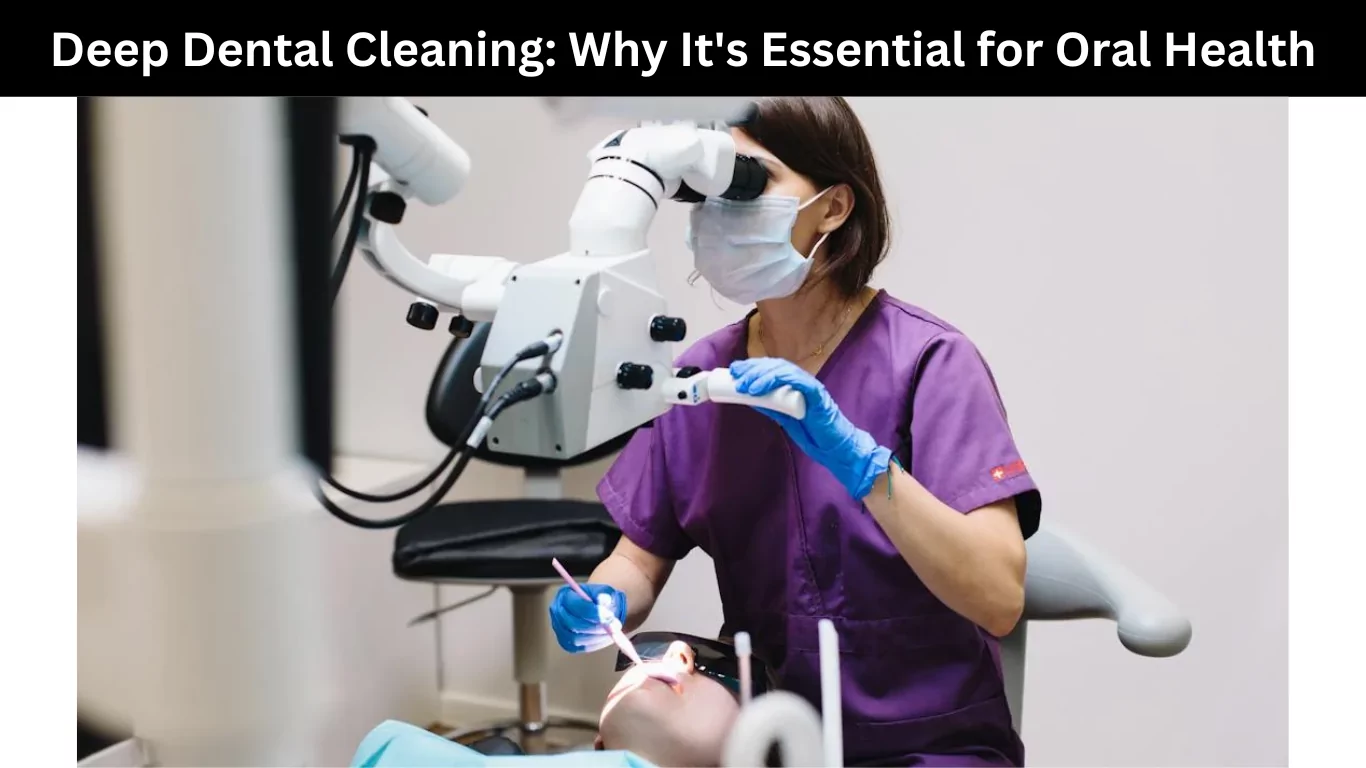Oral health is critical to overall well-being, yet it’s often overlooked in our daily routines. Regular brushing and flossing are fundamental, but they might not always be sufficient to prevent oral diseases. This is where the role of deep dental cleaning becomes vital. Deep dental cleaning, also known as scaling and root planing, goes beyond the scope of regular dental cleaning to address issues that affect the health of your gums and teeth. This post will explore why deep dental cleaning is essential for oral health.
Visiting the best dentist in Montclair NJ, can be a game-changer in your oral healthcare regimen. Their expertise in deep dental cleaning can help prevent gum diseases, tooth decay, and other oral health problems.
The Importance of Deep Dental Cleaning
Prevention of Gum Disease
One of the primary reasons for deep dental cleaning is the prevention of gum disease, such as gingivitis and periodontitis. If left untreated, these conditions can lead to tooth loss and other serious health complications. Here’s how deep dental cleaning helps:
- Removal of Plaque and Tartar: Over time, plaque and tartar build-up on teeth, especially below the gum line. Deep cleaning effectively removes these, reducing the risk of gum disease.
- Reduction of Periodontal Pockets: Gum disease can create pockets between the teeth and gums. Deep cleaning helps in reducing these pockets, promoting healthier gums.
- Halting Disease Progression: For individuals already showing signs of gum disease, deep cleaning can stop its progression, preventing further damage.
Preserving Your Teeth’s Health
Deep dental cleaning plays a crucial role in preserving the health of your teeth. Removing plaque and tartar beneath the gum line prevents decay and helps maintain strong, healthy teeth.
- Prevents Tooth Loss: By tackling the root causes of gum disease, deep dental cleaning helps prevent tooth loss, which is often a result of untreated gum disease.
- Enhances Tooth Longevity: Regular deep cleanings contribute to the longevity of your teeth by keeping the supporting structures healthy.
The Deep Cleaning Process: What to Expect
When you visit a dentist for deep cleaning, the process typically involves two main steps: scaling and root planing.
Scaling
This step is crucial in deep dental cleaning. It involves the removal of plaque and tartar from the tooth surface and beneath the gums. Plaque is a sticky film of food debris, bacteria, and saliva. When plaque hardens on the teeth, it turns into tartar, which is much more challenging to remove. Dentists use specialized dental tools for scaling, such as ultrasonic instruments and manual scalers. These tools effectively scrape off the plaque and tartar from above and below the gum line.
Root Planing
After scaling, root planing is performed. This procedure smooths the tooth root and helps the gums reattach to the tooth surface. During root planing, the dentist carefully cleans the roots of the teeth, removing any plaque or tartar from these deeper areas. This process also removes rough spots on the roots, eliminating bacterial toxins. The smoother root surface allows the gums to heal and reattach themselves more firmly to the teeth.
The procedure might require more than one visit, depending on the extent of the gum disease. Local anesthesia is often used to minimize discomfort. This is especially helpful if your gums are very sensitive or dental cleaning is extensive.
Post-Procedure Care
After the procedure, you may experience some tenderness or slight bleeding. Your dentist will provide specific care instructions, including gentle brushing, using a special mouthwash, and avoiding certain foods for a short period. It’s essential to follow these instructions carefully to ensure proper healing.
Follow-Up Visits
Follow-up visits are crucial to monitor the healing process and ensure that the gums are properly reattached to the teeth surfaces. Your dentist will check for any pockets that may have formed between the gums and teeth and assess the overall health of your gums.
Long-Term Benefits
Regular deep cleanings and good oral hygiene practices at home can have long-term benefits for your oral health. They can prevent gum disease progression, reduce tooth loss risk, and contribute to overall health.
Conclusion
Deep dental cleaning is not just a procedure for those with evident oral health issues; it’s a proactive measure to maintain optimal oral health. By addressing issues like plaque and tartar buildup, deep cleaning plays a crucial role in preventing gum disease and preserving the health and longevity of your teeth. Regular visits to the best dentist in Montclair, NJ, for deep dental cleanings can be a cornerstone in maintaining oral health and overall well-being. Remember, a healthy mouth is a gateway to a healthy body, and deep dental cleaning is essential in keeping that gateway pristine.
